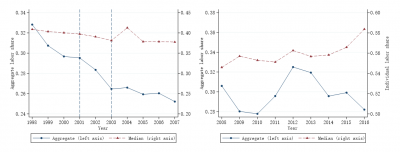Research has illuminated potential risks associated with artificial sweeteners, suggesting a connection between their consumption and cognitive decline. A comprehensive study involving over 12,000 middle-aged adults in Brazil indicates that low- and no-calorie sweeteners may adversely affect brain health, particularly in individuals under 60 years of age. This study, led by Dr. Claudia Suemoto from the University of Sao Paulo, raises important questions about the long-term effects of these widely used additives.
The investigation monitored participants’ dietary habits over eight years, focusing on their intake of seven common artificial sweeteners: Aspartame, Saccharin, Acesulfame-K, Erythritol, Sorbitol, Xylitol, and Tagatose. Participants self-reported their consumption levels, allowing researchers to correlate sweetener intake with cognitive performance across various assessments.
Findings revealed a significant link between higher consumption of these sweeteners and declines in global cognition and verbal fluency. The study notably highlighted that the association was most pronounced in those diagnosed with diabetes and individuals under 60 years old. Dr. Suemoto explained, “Cognitive performance peaks around the third decade of life, between 25 and 30 years old, and after that there is a very slow, gradual decline in function. What our study shows is that sweetener consumption may accelerate this natural process, even in middle-aged adults.”
Researchers suspect that artificial sweeteners may affect brain function through pathways such as neuroinflammation, neurodegeneration, or disruption of the gut-brain axis. Preliminary animal studies suggest that aspartame could trigger inflammation in the brain, while sugar alcohols like erythritol and sorbitol may alter gut microbiota, potentially compromising the blood-brain barrier. Nevertheless, these animal studies often utilize dosages exceeding typical daily intake for humans.
While this research represents a significant step in understanding the implications of artificial sweeteners, Dr. Suemoto emphasizes the necessity for further studies. Future research could involve more objective measures of sweetener exposure and advanced imaging techniques to identify specific areas of the brain affected by these additives.
Currently, the U.S. Food & Drug Administration (FDA) maintains that artificial sweeteners are safe for consumption, based on existing scientific evidence. However, Dr. Suemoto advises moderation. “It is wise to limit consumption as much as possible, ideally avoiding daily use,” she stated.
Artificial sweeteners are prevalent in many processed foods and beverages, which include but are not limited to diet sodas, sugar-free gum, packaged protein bars, and low-calorie desserts. This widespread usage raises concerns about their cumulative effects on health.
To mitigate potential risks while maintaining a balanced diet, individuals may consider healthier alternatives. For instance, opting for sparkling water infused with citrus or berries instead of diet soda, choosing plain Greek yogurt over flavored varieties, or preparing low-sugar energy bites can be beneficial.
To support brain health as one ages, studies suggest focusing on a diet rich in whole, plant-based foods. Nutrients such as healthy fats, antioxidants, carotenoids, vitamin E, and choline are particularly effective in reducing inflammation and promoting cognitive longevity.
As the conversation around artificial sweeteners evolves, it is crucial for consumers to stay informed and make dietary choices that prioritize long-term health.
































































